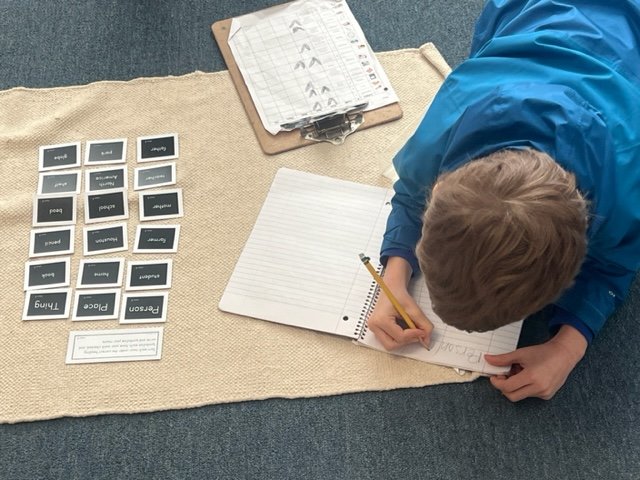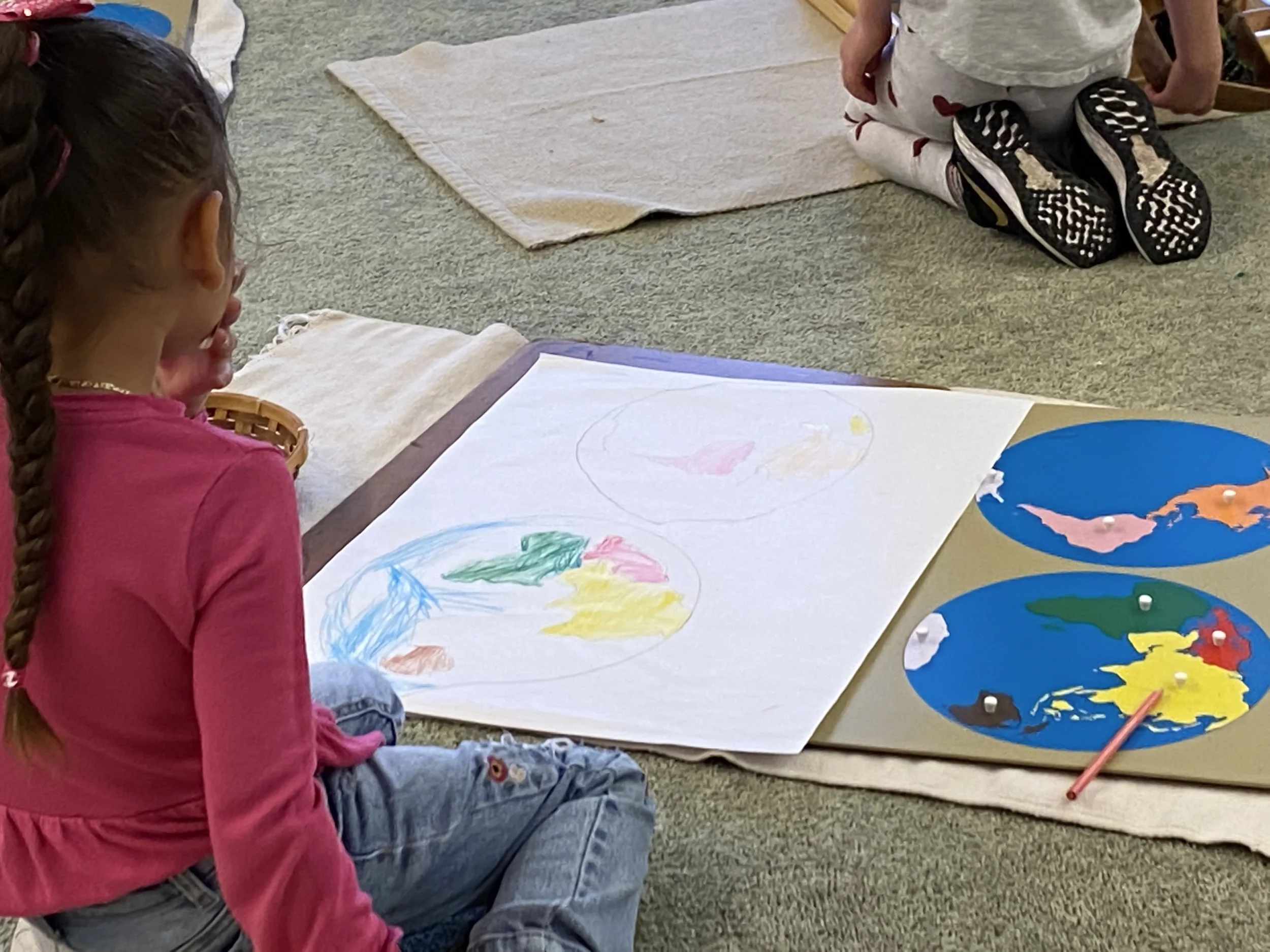
System of Justness
Rethinking a Conventional Approach to Behavior
“This is education, understood as a help to life; an education from birth, which feeds a peaceful revolution and unites all in a common aim, attracting them as to a single centre.”
- The Absorbent Mind, by Dr. Maria Montessori
What is the System of Justness?
One of Dr. Montessori’s revolutionary insights about children is the power of work to construct the personality. So what can we do to ensure that all children, including those having difficulty, have equitable access to work opportunities and show up as their whole self? How do we as adults engage in spiritual preparation, build strong relationships with all of our children, and understand how to reconnect them to work?
The System of Justness is a comprehensive framework for proactive and responsive support for the whole school through fidelity to the Montessori method, respectful relationships with children, and equitable support for children who need it most. Designed for public Montessori schools, the System of Justness gives structure to your school’s approach to serving all children. The system is fully realized by a team of people centralized around this work including the Dean of Students, Montessori Coach, Montessori Early Intervention Lead, Social Worker or others who are currently working with “key children” (children who are not getting the support they need). The visual below shows the main components of the System of Justness.
The PMAI framework for building resilient public Montessori schools
One School: The schools our children deserve are vibrant ecosystems in which every part supports the whole.
A Montessori education is an aid to life for all of its members, big and small. School leadership and coaches manifest the method through coordination of roles and responsibilities to serve the unlimited potential of each of its members.
Honest talk: Open, clear communication is an essential component of building a lasting community. As prepared adults in service to the prepared environment of the entire school we must live into the method, providing opportunities for observation, reflection and respectful conversation.
Strong Systems: Structures and routines for schools that hold children at the center are essential for developing resilient Montessori schools. Therefore, creating systems for navigating the three-part relationship between public school requirements, our Montessori method, and the needs of our community rests at the foundation.
Nautilus Approach implementation
The Nautilus Approach lies at the center of the framework offering support for the whole school through step-by-step guidance to reconnection through work through set phases during which the goal is to support the child in returning to their work. The Nautilus Approach replaces the traditional “discipline/behavior policy” that Montessori schools in the public sector often use in line with their school district or for lack of better alternatives. Like the Montessori method, it is a constructivist approach, focuses on the whole-human (ratherthan other discipline policies or systems that use a behaviorist approach), and aims to reconnect the child to their environment.
As part of a larger System of Justness, the Nautilus Approach presupposes strong Montessori implementation and a school-wide protocol for supporting children who are not thriving, such as Montessori Early Intervention. When that is in place, the Nautilus Approach, along with strong Montessori implementation will support 80-90% of students. This leaves the remaining students to be served by Montessori Early Intervention.
Montessori Early Intervention
Learners who have repeated difficulties in the classroom, or are not thriving, receive extra support through the Montessori Early Intervention process.
Montessori Early Intervention is an approach for offering early, Montessori-oriented support for children and families. It supports children who arrive at school unsure of how to engage in a Montessori learning environment or who over time struggle to move forward in their learning either academically, behaviorally, socially, or emotionally. This is the BASE, the lens through which to consider the main question “What’s going on with this child?” Which of those areas is creating the greatest challenge and what adjustments could be made to support them in that area.
The process begins with a Family Meeting and a shared Action Plan for home/school collaboration. If this does not resolve the situation the next step is a level team meeting where the child’s strengths, interests, and challenges are brought to the team of Montessori educators to brainstorm possible supports. The strongest of these ideas are put into a new Action Plan that is set in motion with a stated goal and designated way to collect data.
This is a Montessori version of Multi-Tiered System of Support (MTSS) as required in public schools, and allows teams to develop Action Plans aligned with the Montessori method that support children thriving in the classroom.



